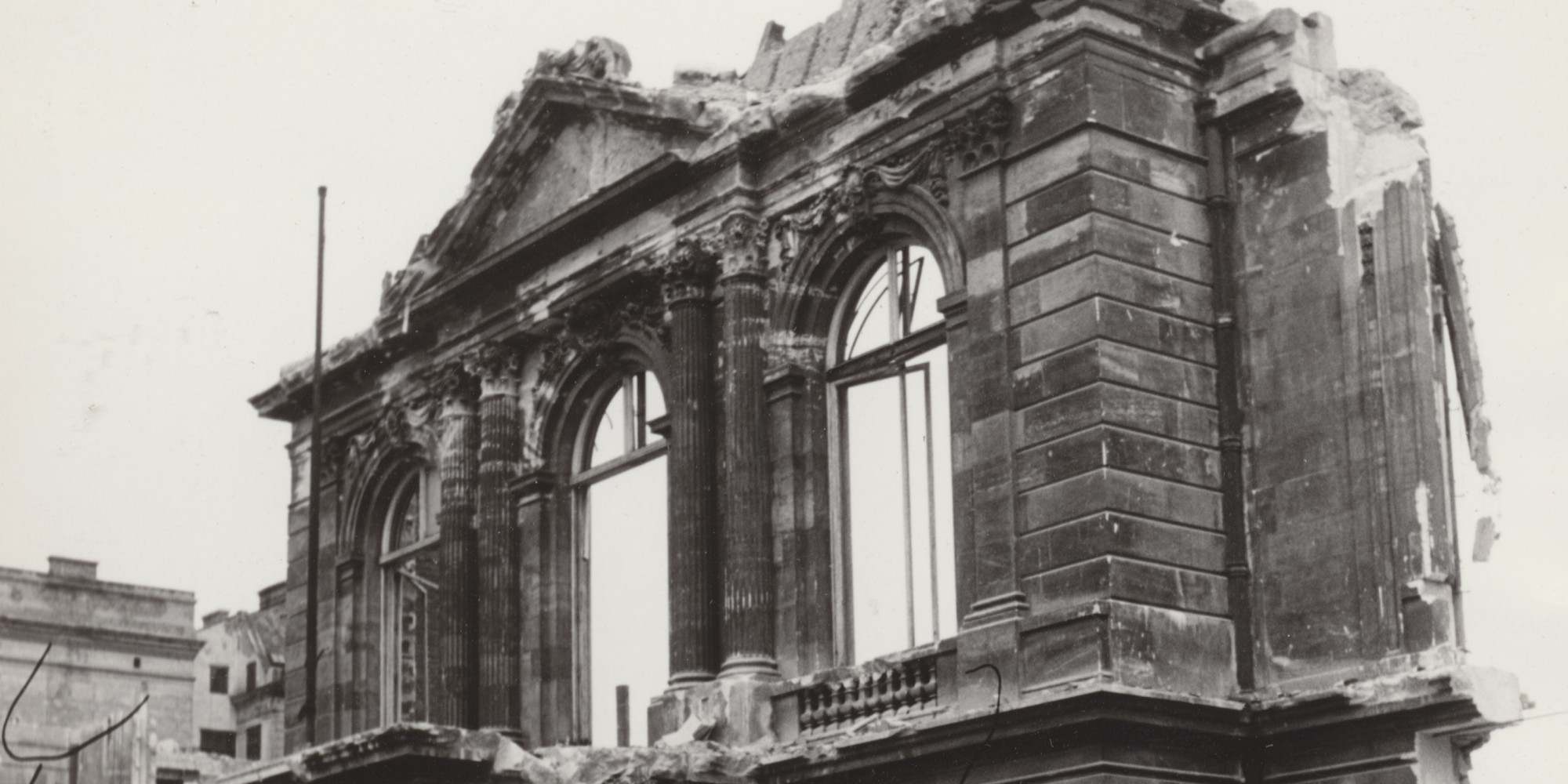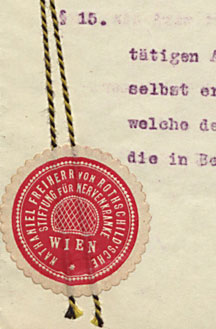News:
The Vienna Rothschilds. A Thriller
Exhibition at the Vienna Jewish Museum Dorotheergasse 12.12.2021 - 05.06.2022

From the beginning, the Viennese Rothschilds were ensnarled in major political, economic, and social conflicts, had to assert themselves against competitors, and were confronted with anti-Semitic stereotypes. But they repeatedly stood up for their oppressed and persecuted fellow believers as well. The Rothschilds also established numerous educational and charitable foundations for both Jewish and non-denominational institutions.
In 1938, the Gestapo arrested Louis Rothschild and held him hostage to extort the Rothschild’s entire fortune. Released from custody more than a year later, he was finally able to emigrate to the USA. After the end of the Second World War, the Viennese Rothschilds had a large part of their stolen property restituted, but in order to obtain an export license for several of their artworks, they had to forcibly donate essential pieces to Austrian museums. They were basically robbed a second time. It was not until 1999 that these coerced donations were restituted. Yet the story of the Rothschilds in Austria continues: To this day, a Rothschild grandson is fighting in court for the future of his ancestors’ endowment, the Nathaniel Freiherr von Rothschild Endowment for the Mentally Ill, today’s Neurological Rehabilitation Center Rosenhügel. A commission of experts instituted by the Vienna provincial government investigated the foundation’s history, but only up until the year 1963. In November 2021, the commission recommended that commemorative plaques be mounted on the pavilions on Rosenhügel.
This exhibition seeks to highlight the family’s achievements for the city of Vienna and the country, and to explore the material and immaterial legacy of the Rothschilds in Austria.
Curators: Gabriele Kohlbauer-Fritz, Tom Juncker
Exhibition design: Schuberth & Schuberth
Visitor information: https://www.jmw.at/en/visit
Opening and short tour of the exhibition by Director Dr Danielle Spira and curators Gabriele Kohlbauer-Fritz and Tom Juncker on YouTube at https://www.youtube.com/watch?v=9Xy8YtqyQUY
Exhibition information: https://www.jmw.at/jart/prj3/jmw/main.jart?rel=en&reserve-mode=active&content-id=1610511893597&j-cc-id=1623201503270&j-cc-node=ausstellung&j-cc-name=hybrid-content
Catalogue of the exhibition in German and English at https://gottfriedundsoehne.com/produkt/die-wiener-rothschilds-ein-krimi-the-vienna-rothschilds-a-thriller/
Report of the Rothschild commission
Following a decision by the Vienna State Parliament on March 12, 2020, an independent commission of experts examined the history of the Nathaniel Freiherr von Rothschild Foundation for the Mentally Ill on behalf of the Social Affairs, Health and Sport, and Culture and Science business groups .
The commission consisted of Univ.-Prof. in Dr. in Ilse Reiter-Zatloukal (Head), Mag. Dr. Gerhard Baumgartner, Univ.-Prof. GDR. Oliver Rathkolb, Univ.-Prof. Dr. Roman Sandgruber and Dr. in Ulrike Zimmerl.
The results have been available since November 18, 2021.
Detailed review of the foundation's history

In 15 chapters, the report deals in detail with the foundation and its institutions in Döbling (Maria-Theresien-Schlössel) and Hietzing (Rosenhügel). The foundation in 1907, supported by the philanthropic commitment of the founder Nathaniel von Rothschild, the imminent changes during the First World War and the consequences of hyperinflation, the dissolution under Nazi rule and the re-establishment in the post-war period, taking into account the Role of the City and State of Vienna.
The focus of the research was on questions about the history of the foundation and the foundation's assets up to the beginning of the 1960s. For this period in particular, the sources and thus the history of the foundation were so far only incompletely known.
A summary summarizes the main results at the end of the report. Relevant documents can be found in the appendix.


